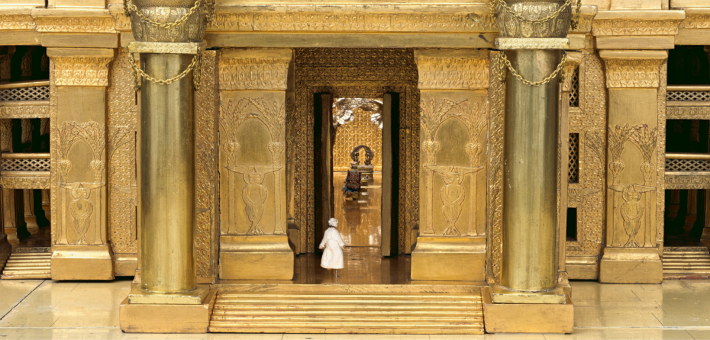Commentary on 1 Kings 5:1-5; 8:27-30, 41-43
God had said back in 2 Samuel 7 that it would not be David who would build God a temple (“house”), but it would be David’s son. And so it comes to pass that Solomon undertakes the great work of building a temple fit for Israel’s deity. We note that the text is careful to present Solomon as fully aware that God cannot be put in a box (8:27), even in a temple as lovely as he hopes to build. Solomon possesses an appropriate sense of his own humility and awe vis-à-vis the deity.
In his lengthy prayer at the dedication of the temple, Solomon first prays for the dynastic succession of David’s line (verses 25–26), and that God might hear his own prayers as king and the prayers of the people of Israel (verses 27–30). Then Solomon invokes a variety of potential situations and prays that God might hear the prayers of the people when those situations arise: that God might oversee justice when there are disputes among the people (verses 31–32); that God might forgive the sins of the people when they are defeated by enemies (verses 33–34; also when they are in battle, verses 44–45); and for relief in times of natural disaster (verses 35–40).
The portion of the prayer that the lectionary includes concerns Solomon’s prayer that God listen to the prayers of non-Israelites (verses 41–43). Scripture has many and diverse opinions about outsiders: Are they a threat (for example, Deuteronomy 7:1–4; 20:16–18)? Are they a blessing (for example, Genesis, Ruth, the numerous outsiders in Matthew’s genealogy of Jesus)? Much depends on the historical context in which a particular tradition emerged. At some moments it apparently felt necessary to draw the distinctions more firmly between insiders and outsiders, whereas other periods reflect a greater openness to outsiders.
Yet it should not surprise us that different responses can come from the same time period. For example, in the postexilic period there was considerable anxiety about the viability of the Jewish community, such that according to Ezra/Nehemiah, non-Israelite wives and children were sent away in order to preserve the ethnic identity of the community after the exile. Yet Isaiah 56, with its robust vision of welcoming foreigners, comes from roughly the same period.
In sum, a lively conversation is happening within the Bible itself about how God’s people might think about outsiders. The overall tenor of the biblical materials reflects an openness to outsiders. The eschatological vision in Isaiah 19:24–25 points to the dominant drumbeat of the whole of Scripture, with its embrace of outsiders who have at various points been detested enemies: “On that day Israel will be the third party with Egypt and Assyria, a blessing in the midst of the earth, whom the LORD of hosts has blessed, saying, ‘Blessed be Egypt my people and Assyria the work of my hands and Israel my heritage.’”
In our own context, where Christian nationalism has been spreading, Solomon’s explicit calls for God to hear the prayers of foreigners is timely. The God of the Scriptures is always bigger than any one nation. This is true for the Hebrew Scriptures even as it is more obviously the case for the New Testament, written as it was when Palestine was under Roman occupation.
Many theological traditions have the resources within their own histories to challenge Christian nationalism—they are just not accustomed to having to draw upon them. The Presbyterian Church (USA), for example, offers a helpful corrective to Christian nationalism in its Confession of 1967 (one of its core theological documents):
Although nations may serve God’s purposes in history, the church which identifies the sovereignty of any one nation or any one way of life with the cause of God denies the Lordship of Christ and betrays its calling.
As Solomon hoped and prayed, God embraces the prayers and the people of all nations, not just one.
PRAYER OF THE DAY
Lord God, whom no dwelling can contain,
In this house we gather to call upon your mercy, to thank you for your goodness, and to praise your name forever. Hear the pleas that come to you from all corners of the earth, that our words may not fall upon deaf ears, but that you, our creator, will respond with kindness, compassion, and grace, in the name of the one whose kingdom extends far beyond these walls, Jesus Christ our Lord. Amen.
HYMNS
Built on a rock ELW 652
Lord Christ, when first you came to earth ELW 727, H82 598
Open your ears, O faithful people ELW 519
CHORAL
I was glad, C. Hubert H. Parry


October 27, 2024